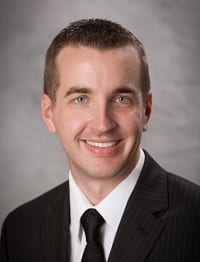UCF Alumnus Earns Prestigious Sagan Fellowship
 Kevin Stevenson ’12, graduated from the University of Central Florida with a Ph.D. in physics (planetary sciences track) and the Order of the Pegasus. He is now a post-doctoral scholar at the University of Chicago. In January, Kevin was awarded a 2014 Sagan Postdoctoral Fellowship. It is estimated that 7 fellowships will be given out nationwide in 2014.
Kevin Stevenson ’12, graduated from the University of Central Florida with a Ph.D. in physics (planetary sciences track) and the Order of the Pegasus. He is now a post-doctoral scholar at the University of Chicago. In January, Kevin was awarded a 2014 Sagan Postdoctoral Fellowship. It is estimated that 7 fellowships will be given out nationwide in 2014.
In late 2013, Stevenson applied for the renowned Sagan Fellowship, which “supports outstanding recent postdoctoral scientists in conducting independent research broadly related to the science goals of the NASA Exoplanet Exploration area. The primary goal of missions within this program is to discover and characterize planetary systems and Earth-like planets around nearby stars. Fellowship recipients receive financial support to conduct research at a host institution in the US for up to three years” according to the NExSci website.
The proposed research may be theoretical, observational, or instrumental. This year, the program is open to applicants of any nationality who have earned (or will have earned) their doctoral degrees on or after January 1, 2011, in astronomy, physics, or related disciplines. The fellowships are tenable at U.S. host institutions of the fellows’ choice, subject to a maximum of one new fellow per host institution per year.
They accept the submission of up to two host institutions. The purpose of designating first and second-choice institutions in the application is to provide the program with flexibility should there be several highly ranked applications at any single institution. Barring this circumstance, it is expected that awardees will use their Fellowships at their first-choice institutions.
Stevenson’s fellowship will be used at the University of Chicago where he will study the atmospheres of extrasolar planets, commonly referred to as exoplanets. Using both ground- and space-based telescopes, Stevenson will endeavor to answer some of the most outstanding issues in our understanding of exoplanetary atmospheres. “I’m truly excited about this amazing opportunity that I’ve been given,” said Stevenson. “The knowledge gained today from exoplanet characterization is an important step towards identifying the potential for life on neighboring Earth-like planets in the future.”
